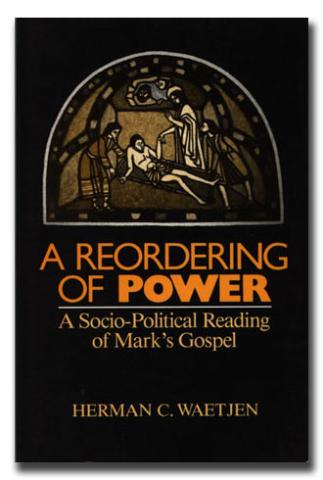
A reader-response treatment of the Gospel according to Mark which takes into account the socioeconomic and political realities of Mark's context.
The book contends:
- The author addressed the Gospel to the segments of the lower classes of agrarian society, specifically peasants and artisans.
- These addressees resided in the rural countryside of southeastern Syria, near the Decapolis.
- Mark 16:8 is the original conclusion of the Gospel and was intended to evoke from the reader an ending beyond 16:8.
The book is divided into three sections:
- An introduction which is intended to prepare the reader's interaction with the Marcan text by locating the Gospel within the social stratification of agrarian society and by offering a brief account of the literary-critical method of Reader-Response Criticism.
- A literal translation of the Greek text into English featuring the rustic character of Mark's Greek.
- A presentation of my own interaction with Mark's Gospel which moves forward verse by verse, connecting the parts with the whole, individual episodes with the entire story, and as conscious as possible of expectations raised, fulfilled, and shattered in the course of the narrative.
External Review
Waetjen offers us an illuminating reading of Mark's Gospel which was forged out of his own experiences in the Third World. Working from a fresh translation which lays bare the Markan style, Waetjen traces the stark conflict between the new ordering of power announced by Jesus and the tenacious domination of the ruling elite in Israel's agrarian society. This innovative application of the sociology of millennialism to the phenomenon of Mark's narrative world is loaded with insights which will be of interest to readers at every level."
David Rhoads
Lutheran School of Theology
Chicago